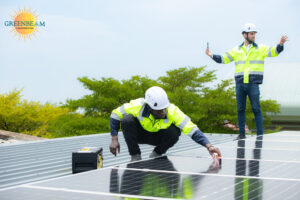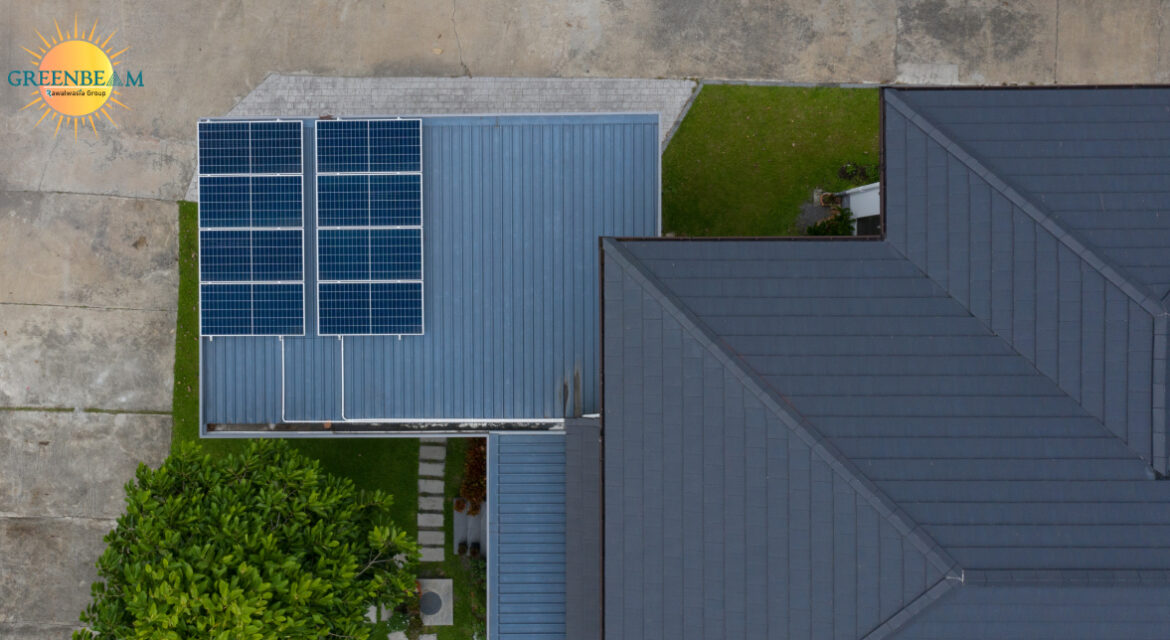What is Roof Solar?
Roof solar refers to solar panels installed on the roofs of residential, commercial, or industrial buildings. These systems capture sunlight and convert it into usable electricity, providing a clean and renewable energy source.
Benefits of Roof Solar Systems
- Cost Savings
- Environmental Impact
- Energy Independence
- Property Value

How Does a Roof Solar System Work?
- Solar Panels: Capture sunlight and convert it into direct current (DC) electricity.
- Inverter: Converts DC electricity into alternating current (AC) for household or industrial use.
- Battery Storage (Optional): Stores excess energy for use during nighttime or cloudy days.
- Net Metering: Allows you to sell surplus electricity back to the grid, reducing overall costs.
Choosing the Best Roof Solar System
Type of Panels:
Monocrystalline: High efficiency and sleek appearance.
Polycrystalline: Cost-effective and durable.
Thin Film: Lightweight and flexible for unique roof designs
System Size:
Assess your energy consumption to determine the required capacity.
Consult with professionals to optimize system performance.
Installation Company:
Choose certified and experienced installers.
Verify warranties and after-sales services.
Steps to Install Roof Solar Panels
Site Assessment:
Analyze roof condition, angle, and sunlight exposure.
System Design:
Tailor the solar system to your energy needs and roof specifications.
Permits and Approvals:
Obtain necessary permissions from local authorities.
Installation:
Secure the panels, connect inverters, and integrate with your electrical system.
Testing and Monitoring:
Ensure proper functioning and monitor performance regularly.
Maintenance Tips for Roof Solar Systems
- Regular Cleaning: Remove dust and debris to maintain efficiency.
- Periodic Inspections: Check for loose wires or damaged panels.
- Monitor Performance: Use apps or monitoring systems to track energy output.
- Professional Servicing: Schedule annual maintenance with certified technicians.
Cost of Roof Solar Systems
The cost of installing a roof solar system varies based on factors such as:
- Type and number of panels.
- Installation complexity.
- Battery storage options.
- Government Subsidy.
Why Choose Roof Solar for Your Energy Needs?
Investing in roof solar is a long-term commitment to savings and sustainability. With advancements in solar technology and increasing affordability, now is the best time to switch to clean energy.
FAQs About Roof Solar Systems
- How long do solar panels last? Most panels come with a 25-year warranty but can last up to 30-35 years with proper maintenance.
- Can I install roof solar on a flat roof? Yes, panels can be angled appropriately on flat roofs for optimal sunlight exposure.
- What if my roof is shaded? Consider microinverters or trimming surrounding trees to maximize sunlight.
Conclusion
Roof solar systems are an excellent way to reduce energy costs, promote sustainability, and gain energy independence. Whether you’re a homeowner or a business owner, switching to solar is a step toward a greener future.






